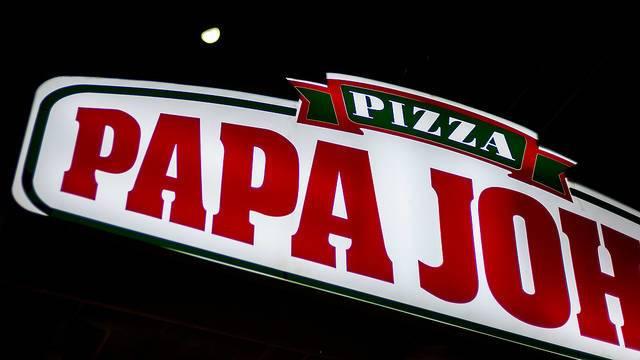
There is a long history of companies that when push came to shove, they finally bucked up and got rid of a wayward founder. Uber eventually had to relegate Travis Kalanick to only a seat on its board after months of scandals that painted the ridesharing company as all that is wrong with Silicon Valley. American Apparel endured years of controversy from its founder, Dov Charney, until his company, and the hedge fund he handpicked to help him keep control of the clothing manufacturer and retailer, finally cut ties to him in 2014. There are exceptions: for decades, investors were so disenchanted with Armand Hammer’s shenanigans and stewardship of Occidental that the company stock actually increased after his death in 1990.
Now, we have the tale of John Schnatter, whose various remarks over the past year in part helped punch down Papa John’s stock to a long and painful downward trajectory. Although he was replaced by his chief operating office at the beginning of this year, Schnatter’s image was still prominently displayed on the company’s marketing collateral, web site and pizza boxes.
But in case you missed it over the weekend, accusations of racism finally spurred Papa John’s board to sever even more his ties to the company. It was not enough for Schnatter to resign his chairmanship after last week’s controversy; the company’s board of directors evicted him from his office at Papa John’s headquarters in Louisville, Kentucky.
Schnatter is now backtracking on his promise to hand over control of his company (and claims he was baited by his ad agency’s suggestion of Kanye West for a marketing campaign), but Papa John’s ordeal has become a case study for companies in this era of brands taking stands: a polarizing CEO’s behavior can demolish a company’s reputation in a only a nano-fraction of the time needed to build that company’s prominence in the market place.
There is a corporate governance lesson here as well. No matter how charismatic a founder/CEO may be, and however compelling one’s life story appears (Schnatter’s life journey could have been great fodder for a movie before last week’s controversy), boards need to be proactive when it comes to monitoring the public behavior – and subsequent reactions - of a company’s chief executive, as well as that of the rest of the C-suite. The all-too-rapid impact from the likes of those including Schnatter, Kalanick or Charney can too quickly bruise and batter a company, from its brand reputation to stock price, and can result in having a harmful effect on far too many people.
If they are not already, the days of a board acquiescing to a company’s founder are done.
As the Financial Times’ Brooke Masters wrote on Monday, “Without a board willing to say no, a founder who is losing touch can easily stray into trouble, either through poor strategic decisions or personal behavior that angers employees and investors.”
Watch for more decisive action in the coming months as companies increasingly take the long view, taking seriously the short-term volatility that occurs when corporate leaders humiliate themselves – and their companies – in both traditional and of course, social media. Case in point: Elon Musk’s vicious salvos lobbed at one of the Wild Boars’ cave rescuer will not be forgotten if Twitter continues to get the billionaire visionary in trouble – even if it appears Tesla is close to overcoming its Model 3 “production hell.”
Image credit: Mr. Blue/Flickr

Leon Kaye has written for 3p since 2010 and become executive editor in 2018. His previous work includes writing for the Guardian as well as other online and print publications. In addition, he's worked in sales executive roles within technology and financial research companies, as well as for a public relations firm, for which he consulted with one of the globe’s leading sustainability initiatives. Currently living in Central California, he’s traveled to 70-plus countries and has lived and worked in South Korea, the United Arab Emirates and Uruguay.
Leon’s an alum of Fresno State, the University of Maryland, Baltimore County and the University of Southern California's Marshall Business School. He enjoys traveling abroad as well as exploring California’s Central Coast and the Sierra Nevadas.














